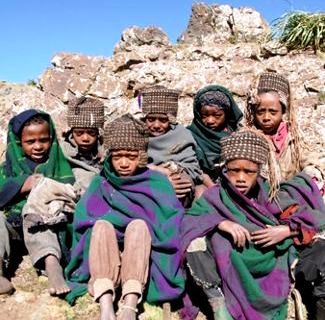Montreal / Pyeongchang – The Nagoya Protocol on Access to Genetic Resources and the Fair Equitable Sharing of Benefits Arising from their Utilization, of the Convention on Biological Diversity (CBD), entered into force on October 12, providing the world with a mechanism to ensure that access to and the sharing of benefits from the use of genetic resources, and associated traditional knowledge, happen in a context of transparency and with equity.
The fair and equitable sharing of benefits from genetic resources is one of the three main objectives of the CBD, with the other two being the conservation of biological diversity and the sustainable use of its components.

The Nagoya Protocol on Access and Benefit-sharing provides a legal framework to ensure that the access and utilization of genetic resources coming from plants, animals, bacteria or other organisms for commercial, research or other purposes, be created on the basis of access and benefit-sharing agreements between providers and users which entail prior informed consent and mutually agreed terms.
Benefits received in exchange for access to genetic resources can be monetary or non-monetary, including, for instance, technology transfer, joint research or capacity-building activities. Allowing Parties to fully benefit from their genetic resources generates new opportunities and incentives for conserve and sustainably use biodiversity.
The Protocol also addresses issues related to access to and benefit-sharing from the use of traditional knowledge associated with genetic resources held by indigenous and local communities. In this regard, Parties are to take measures to ensure prior informed consent and fair and equitable benefit-sharing with these communities, keeping in mind community laws and procedures as well as customary use and exchange.
“The Nagoya Protocol is central to biodiversity for sustainable development. Its entry into force will create incentives for preserving genetic diversity, biodiversity in general, and associated traditional knowledge. It will provide the conditions for continuous research and development on genetic resources. But most importantly, the Protocol will give us the opportunity to develop an economy that is more sustainable and where the value of natural resources will be truly acknowledged,” said Braulio Ferreira de Souza Dias, Executive Secretary of the Convention on Biological Diversity.
“The entry of the landmark Nagoya Protocol into force with 51 ratifications, ahead of the Aichi deadline, opens up opportunities for the fair and equitable sharing of the benefits from the utilization of genetic resources. At the same time, it offers a reminder that the Aichi targets are within reach,” said Achim Steiner, UN Under-Secretary-General and Executive Director of the UN Environment Programme. “The Protocol will create greater equity and transparency for both providers and users of genetic resources which will enhance the contribution of biodiversity to development, poverty eradication and human wellbeing.”
“It is up to us – here and now – to build momentum to encourage further ratifications, strengthen political will and take decisive measures to keep the Aichi Targets on track,” he added.
The historic treaty is the result of decades of negotiations, which culminated in the Protocol being agreed on 29 October 2010, in Nagoya, Japan. However, 50 Parties to the CBD had to ratify before it could enter into force. The Protocol received its final necessary ratification on 14 July 2014. It now has 54 ratifications.
The implementation of the Protocol also contributes to the achievement of the Aichi Biodiversity Target 16. Target 16 provides that the Nagoya Protocol should enter into force and be operational by 2015.
“The entry into force of the Protocol will contribute to enhancing the benefits to all from biodiversity and ecosystem services and it represents a major step towards achieving Target 16 prior to our target date,” said Braulio Ferreira de Souza Dias at the opening of the capacity building workshop on the Access and Benefit-sharing Clearing-House (ABS-CH) on October 12, in Pyeongchang, Republic of Korea. On this occasion, Parties celebrated the entry into force of the Nagoya Protocol and the launching of the operational phase of the online platform.














